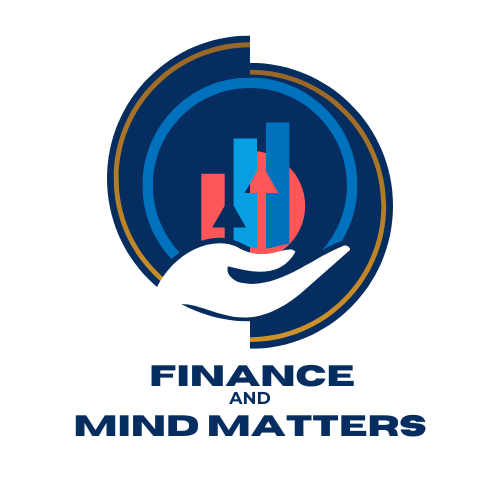Blockchain technology has emerged as a transformative force across industries, reshaping traditional processes and introducing unparalleled transparency, security, and efficiency. From finance to healthcare, supply chain management to governance, blockchain’s potential is vast and continues to grow with new advancements. This article explores the core principles of blockchain, its real-world applications, and how it is driving innovations that are reshaping our world.
Understanding Blockchain Technology
Blockchain is a decentralized and distributed digital ledger that records transactions across multiple systems in a secure, transparent, and immutable manner. Unlike traditional databases, blockchain eliminates the need for intermediaries, relying instead on cryptographic principles and consensus mechanisms to validate and store data.
Key Features of Blockchain Technology
- Decentralization ensures that no single entity controls the network.
- Transparency allows all participants to view recorded transactions.
- Immutability prevents alterations to recorded data.
- Security is enhanced through cryptographic encryption.
- Automation is achieved through smart contracts, which execute predefined conditions.
Applications of Blockchain Technology in Key Industries
Financial Services
Blockchain is revolutionizing the financial sector by enabling faster, more secure, and cost-effective transactions. Cryptocurrencies like Bitcoin and Ethereum are the most well-known examples, but blockchain also powers cross-border payments, digital wallets, and decentralized finance (DeFi) platforms.
Healthcare
In healthcare, blockchain enhances data security and interoperability. Patient records can be securely shared across providers, ensuring accuracy and confidentiality. Additionally, blockchain streamlines drug traceability and combats counterfeit medications.
Supply Chain Management
Blockchain increases transparency in supply chains by providing real-time tracking of goods. Companies can verify the authenticity of products, reduce inefficiencies, and enhance trust among stakeholders.
Real Estate
Blockchain simplifies property transactions by eliminating intermediaries and reducing fraud. Smart contracts facilitate transparent agreements, while tokenization allows fractional ownership of real estate assets.
Governance and Public Services
Governments are adopting blockchain for secure voting systems, land registry management, and identity verification. These applications increase transparency and reduce bureaucratic inefficiencies.
Energy Sector
Blockchain enables peer-to-peer energy trading, allowing consumers to buy and sell excess energy directly. It also supports the management of renewable energy certificates and carbon credits.
Entertainment and Intellectual Property
Blockchain ensures fair compensation for artists and creators by securely tracking the distribution and usage of digital content. Non-fungible tokens (NFTs) have also gained popularity, enabling unique ownership of digital assets.
Technological Advancements in Blockchain
Layer 2 Solutions
Layer 2 technologies, such as Lightning Network for Bitcoin and Optimistic Rollups for Ethereum, address scalability challenges by processing transactions off-chain while maintaining the security of the main blockchain.
Interoperability Protocols
Projects like Polkadot and Cosmos enable different blockchains to communicate and share data seamlessly, fostering a more interconnected blockchain ecosystem.
Energy-Efficient Consensus Mechanisms
As environmental concerns grow, energy-efficient consensus mechanisms like Proof of Stake (PoS) and Delegated Proof of Stake (DPoS) are gaining traction over energy-intensive Proof of Work (PoW).
Decentralized Autonomous Organizations (DAOs)
DAOs utilize blockchain to enable decentralized decision-making within organizations. Members vote on proposals, and smart contracts enforce outcomes.
Zero-Knowledge Proofs (ZKP)
ZKP technology enhances privacy by allowing users to prove the validity of information without revealing the actual data. This has applications in identity verification and confidential transactions.
Quantum-Resistant Cryptography
As quantum computing advances, blockchain developers are working on cryptographic algorithms resistant to quantum attacks to ensure long-term security.
Challenges Facing Blockchain Technology
Despite its potential, blockchain faces several challenges, including scalability issues, energy consumption concerns, regulatory uncertainties, and limited adoption in certain sectors. Addressing these challenges requires collaboration among stakeholders, technological innovation, and supportive regulatory frameworks.
The Future of Blockchain Technology
Blockchain is expected to play a pivotal role in shaping the future of technology and society. Key trends include:
- Increased adoption of decentralized finance and Web3 applications.
- Integration of blockchain with artificial intelligence (AI) and the Internet of Things (IoT).
- Expansion of blockchain use cases in sustainable development and environmental protection.
- Growth of tokenized assets in mainstream finance.
- Enhanced global collaboration to establish standardized regulations.
Conclusion
Blockchain technology is more than a technological breakthrough—it is a paradigm shift that is redefining how industries operate and how trust is established in digital ecosystems. With ongoing advancements and expanding use cases, blockchain has the potential to drive innovation, enhance transparency, and foster a more secure and interconnected world. Embracing its possibilities while addressing its challenges will ensure that blockchain remains at the forefront of technological progress.

